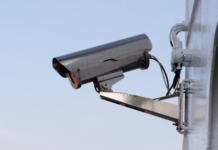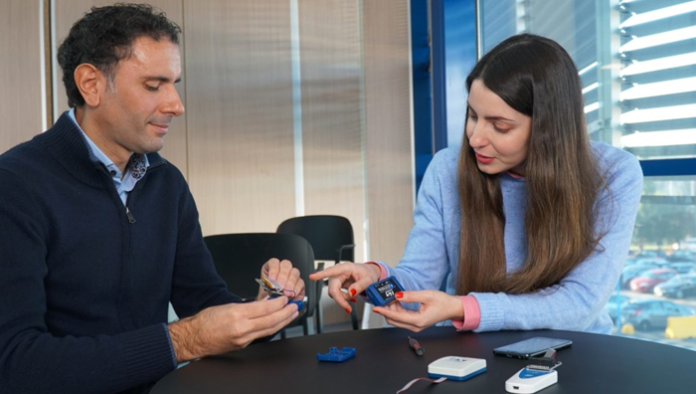
The SensorTile.box PRO redefines what it means to use professional tools destined for the Internet of Things by making the technology accessible to more than just embedded systems engineers. That’s why ST brought this new development tool to numerous academic events, fairs, and contests. As we look back at the reception the SensorTile.box PRO received in 2023, we wanted to use the blog to share the stories that took place behind the scenes and the transformations we witnessed as people who never thought of themselves as IoT engineers suddenly started to create applications, use sensors, and send data to the cloud by leveraging its processing and connectivity capabilities.
The story told by the new SensorTile.box PRO
A path to IoT for newcomers

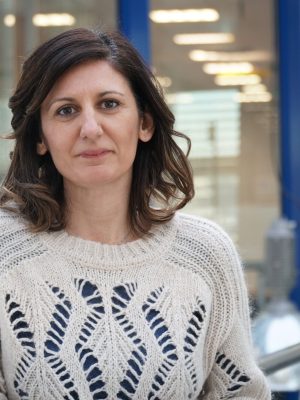

One of the first times we publicly introduced a SensorTile.box PRO was at the “Big Hack”, an event held at the Apple Developer Academy in Naples, Italy, on July 2, 2023. ST gave samples to four teams who had 24 hours to develop an application. Interestingly, these were macOS and iOS software developers, not traditional IoT engineers. Hence, they had far more limited experience with low-power sensor boards. However, the entry and expert modes of the SensorTile.box PRO made the board powerful while remaining accessible to ensure the creation of exciting applications. The winner designed Wakey, an application for people suffering from somnambulism, to provide valuable help for the well-being of users and to help avoid potential injuries.
The upgraded modes of the SensorTile.box PRO
Just like the SensorTile.box announced in 2019, the SensorTile.box PRO includes three modes: Entry (Mode 1), Expert (Mode 2), and Pro (Mode 3). However, the newly released model brings more features. For instance, Mode 1 now includes new machine-learning applications, such as human activity recognition, an in-vehicle baby alarm, or free-fall detection, among others available on GitHub. The SensorTile.box PRO also features a new user interface mechanism called QTouch. It uses the Qvar technology, which connects two electrodes to measure quasi-electrostatic potential variations. In this instance, the probes can detect a swiping motion and use it as a user interaction.
The realization that IoT has become more accessible
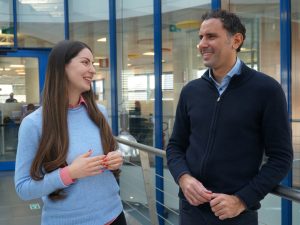
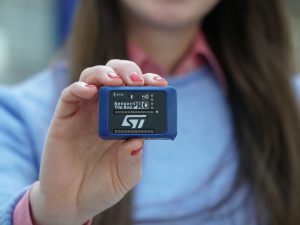
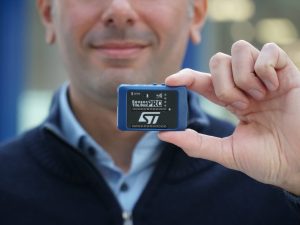
The team behind Wakey at the Apple Developer Academy relied on the Expert mode to build their application. On the SensorTile.box PRO, Mode 2 now includes new power optimizations that only wake up the sensors in use and enable users to tweak data extraction and processing to ensure accuracy while keeping the power draw to a minimum. Thanks to the new features in Mode 2, developers at the Apple event could focus on writing their applications instead of learning how IoT systems work. Because they could just rely on the intelligence driving the SensorTile.box PRO in Expert mode, the contestants only focused on capturing and processing data as the board managed the rest.
The message sent to all in the industry by ST
Overtures to Arduino and Zephyr
Another impactful event took place in October at the Department of Mechanical Engineering at Politecnico di Milano, where Lisa Trollo, responsible for MEMS Sensors Ecosystem and Marketing Communication at ST, walked the students through a presentation on MEMS in the context of sustainability. The event was also held in collaboration with Arduino as the SensorTile.box PRO is fully compatible with the platform. It’s another testament to ST’s desire to make the SensorTile.box PRO accessible to all. That’s why we are also working on supporting Zephyr and will update this blog post when it happens.
Prelude to a new way of building IoT products
Consequently, as the SensorTile.box PRO redefines what “PRO” means in the context of IoT, we saw a new sort of interaction at events like Maker Faire Rome 2023 last October. Attendees would experience the board and start asking questions about the workings of an accelerometer and how it could help solve their challenges. Put simply, by significantly lowering the barrier to entry, we saw new companies exploring IoT in ways they never had thought possible before. Additionally, once these teams finish their proof of concepts, we can refer them to the ST Partner Program, where they can find designers, implementers, and manufacturers to help them bring their ideas to a commercial reality.
Approaching IoT from a low-power machine-learning angle
Politecnico di Milano also saw Denise Sanfilippo, an application development engineer, show a demo running on the SensorTile.box PRO. It used the LSM6DSV16X in an embedded sensor fusion low-power application and Qvar to control a joystick and virtual button in a gaming setting. It was thus a unique opportunity to show why ST chose this specific bill of materials for the new SensorTile platform.
Indeed, from sensors like the LIS2DU12 accelerometer and the the LPS22DF pressure sensor to the STM32U585AI microcontroller as well as the BlueNRG355AC Bluetooth LE 5.2 SoC and the ST25DV04K NFC tag, all contribute to a low power consumption. Moreover, the sensors offer performance compatible with applications featuring machine learning at the edge, and the arrival of the NFC tag opens the way for new communication vectors and user interactions.
For more information visit: https://blog.st.com/sensortilebox-pro/








